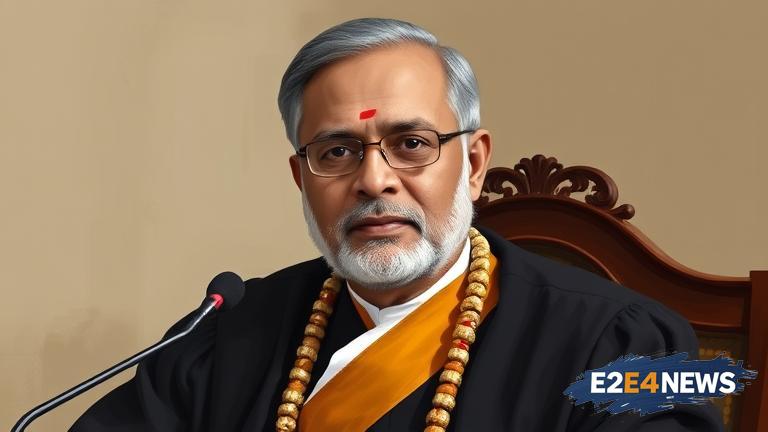The Indian legal system is currently facing a multitude of unique challenges, as stated by Chief Justice Gavai. In a recent address, Justice Gavai highlighted the pressing issues that the judiciary is confronting, including a significant backlog of cases, inadequate infrastructure, and the need for modernization. The Chief Justice emphasized that the Indian legal system is one of the oldest in the world and has been a model for many other countries. However, despite its rich history and heritage, the system is struggling to keep pace with the changing times. One of the major challenges facing the judiciary is the huge pendency of cases, which is causing delays and denying justice to many litigants. Justice Gavai stressed that the judiciary is working tirelessly to clear the backlog, but it requires the support of the government and other stakeholders. The Chief Justice also highlighted the need for modernization and the use of technology to improve the efficiency of the judicial system. He emphasized that the judiciary is committed to providing justice to all citizens, regardless of their social or economic status. However, the system is facing many challenges, including corruption, lack of transparency, and inadequate infrastructure. Justice Gavai called upon the legal fraternity to work together to address these challenges and to ensure that the judiciary remains a beacon of hope for the common man. The Chief Justice also emphasized the importance of legal education and the need for law schools to produce well-trained and socially conscious lawyers. He stated that the judiciary is not just a dispenser of justice, but also a guardian of the Constitution and the rights of citizens. Justice Gavai’s comments have sparked a debate about the need for reform and modernization of the Indian legal system. Many experts have welcomed the Chief Justice’s comments and have called for urgent action to address the challenges facing the judiciary. The Indian government has also responded to the Chief Justice’s comments, stating that it is committed to supporting the judiciary and ensuring that the legal system is modernized and efficient. Overall, the Indian legal system is at a crossroads, and it requires the collective efforts of the judiciary, the government, and the legal fraternity to address the unique challenges it is facing. The future of the Indian legal system depends on its ability to adapt to the changing times and to provide justice to all citizens. The Chief Justice’s comments have highlighted the need for urgent reform and modernization, and it is hoped that the judiciary and the government will work together to address the challenges facing the legal system.
